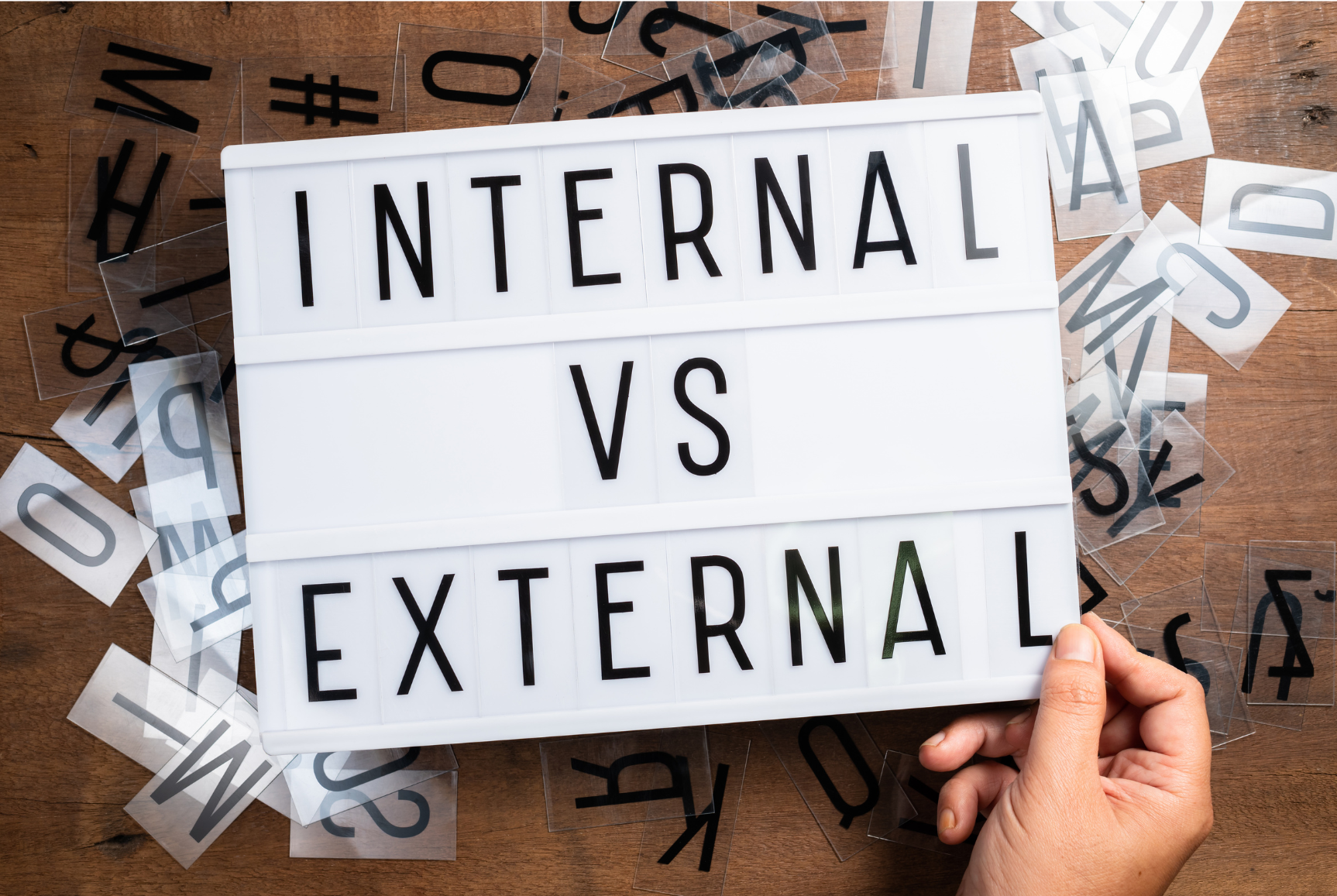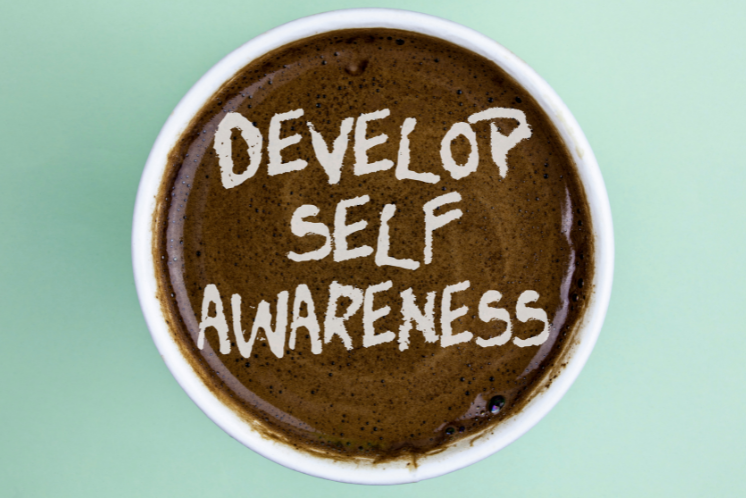Acknowledging our shortcomings and where we might be lacking self-awareness is essential to personal growth.
It’s in that acknowledgment that you can course correct and make positive improvements that will contribute to your long-term development.
In my work with clients, I encourage them to do the same, as self-awareness is essential when seeking clarity of direction to pursue our goals.
Do you find it challenging to listen to or accept constructive criticism?
Are you unable to empathize with or see the perspective of others, or do you find yourself offending those around you without even realizing it?
In this article, we’ll explore nine signs that you might lack self-awareness and the benefits of developing it.
Let’s get started.
What Does Lacking Self-Awareness Mean?
A lack of self-awareness pertains to an individual’s limited ability to introspect and recognize the impact of their thoughts, emotions, and behaviors on themselves and others.
These individuals may struggle to acknowledge their strengths, weaknesses, and motivations, often leading to defensive reactions when faced with criticism.
Additionally, they may have difficulty empathizing with others, struggle to understand their emotions, and display unpredictable or disproportionate emotional responses.
While lacking self-awareness is a common human characteristic, it can be improved through self-reflection and seeking feedback, leading to better decision-making, emotional intelligence, and more meaningful relationships.
Internal vs. External Self-Awareness

Internal self-awareness refers to how you see yourself on the inside.
It’s how you perceive your core values, beliefs, and emotions as you question what makes you do what you do.
External self-awareness has to do with understanding how others view you.
Someone who is aware of themselves is clear about who they are and what they want to accomplish. They welcome input and value others’ opinions.
To ensure you receive valuable feedback that can help you improve, creating a safe, open environment where peers and colleagues feel comfortable being honest with you is crucial.
Becoming more self-aware means maintaining a balance between internal and external self-awareness or having your sense of self correspond with how others view you.
Once this balance has been created, you can be intentional about what areas to improve and modify how you interact with yourself and others.
9 Signs You’re Lacking Self-Awareness

Below are nine signs to reflect on and consider where you might lack self-awareness and where improvements can be made to cultivate it.
1. You’re Always On the Defensive
Those with a lack of self-awareness often find it difficult to accept constructive feedback from someone else without the need to make excuses or defend themselves and their position.
They tend to feel attacked rather than viewing the feedback as an opportunity for growth and improvement and find admitting mistakes or taking responsibility for their actions nearly impossible.
While it’s not likely that you’ll always agree, if you’re unable to put aside your feelings to allow space for other people’s perspectives, ideas, and opinions, then that is a sign that you might be lacking self-awareness.
2. You Act Impulsively
Someone who lacks self-awareness might lack the ability to self-regulate and act impulsively as a result.
Taking action without considering what you’re about to do and the potential consequences of those actions for yourself and others indicates low self-awareness.
Those who act without thinking aren’t always clear on the root cause of their impulsive behaviors, which is one of the many reasons why being intentional about developing self-awareness is crucial.
If your emotional outbursts often consume you, it’s a sign that you might have a low level of self-awareness.
There needs to be an ability to take a step back from a situation and gain clarity on your feelings rather than allowing them to overtake you.
Amid an emotional outburst, thinking clearly, assessing a situation, and making rational decisions isn’t easy. As a result, you could behave in ways you might later regret.
3. You Feel the Need to Be in Control
Another indication of a lack of self-awareness is an inability to relinquish control to others.
An unwillingness to take direction from someone else, even if it’s beneficial, or continually changing things to accommodate yourself is a sign of low self-awareness.
Additionally, demonstrating a need to dominate conversations and interactions with others provides another example, as there tends to be an underlying need to “win” or have the last word.
This controlling behavior may stem from a lack of trust in others to get things done how you would, which you might perceive as the “correct” way.
The reality is that there are multiple ways to accomplish a goal or complete a task.
4. It’s Difficult for You to Admit Mistakes
People with low self-awareness can find it challenging to apologize or admit fault.
This reluctance could be indicative of an inability to show empathy for others.
While it’s human nature to make mistakes, those lacking self-awareness aren’t always able to make that connection for themselves.
Offering an apology means acknowledging mistakes. If there’s an inability to embrace mistakes as opportunities for growth, these admissions might make you feel inadequate or inferior.
As a result, you might instead resort to blame-shifting, denying, or even lying to avoid accepting responsibility.
Those with a higher level of self-awareness are more intentional about offering apologies when they may be in the wrong because they’re capable of understanding how they would feel if the roles were reversed.
5. The World Seems to Revolve Around You
Individuals with low self-awareness tend to have an inflated sense of self.
They might display arrogance, be self-centered, have a sense of entitlement, and use others for personal gain.
These traits are also inherent in people with narcissistic personality disorder (NPD).
Research has found that those with NPD tend to have an inflated sense of self-importance and entitlement.
Whether you’re a narcissist or not, lacking awareness might show up as you consistently prioritizing your own needs over the needs of someone else.
6. You Frequently Regret Your Decisions
You might need more self-awareness if you habitually say things you wish you could take back or often make purchases you regret later.
While it’s human nature to make mistakes, the number of errors should not be to the extent that you’re constantly regretting your poor choices.
If you repeatedly regret your decisions, it might be a sign that you lack self-awareness.
The goal in life should always be to try and learn from your mistakes. This way, you can better avoid similar situations in the future.
However, continuing to repeat the same cycles of behavior is indicative of someone who is not self-aware, as it provides evidence that you are either unable or unwilling to accumulate the lessons that contribute to your evolution.
This negative pattern of taking actions you later regret can be demonstrated in several ways.
Some examples include a propensity to make harmful choices, reacting poorly to situations, or unsuccessful attempts to change.
7. You Often Experience Unhealthy Emotional Patterns
For even the most self-aware individuals, emotions are complex and difficult to acknowledge, much less control.
However, people who lack self-awareness might find managing their emotions even more challenging than the average person.
This could be due to an unwillingness to proactively seek out the root cause of their emotions or a lack of the ability to see toxic patterns of behavior for what they are.
Either way, it’s nearly impossible to make self-improvements if we aren’t first willing to understand where our challenges stem from.
While unhealthy emotional patterns will display themselves differently based on the individual, someone who lacks self-aware awareness might experience some of the following emotions on a seemingly regular basis:
anxiety
depression
panic attacks
feelings of loneliness
easily agitated
overly critical
Recognizing these emotions and how often they occur is vital so you can reach out for professional support when needed.
As you become more self-aware, it’s easier to identify your unhealthy emotional patterns and implement solutions to break free of them.
8. You Seek the Validation of Others
If you prioritize the approval of others over your inner guidance when making decisions or thinking about the future, then you may need more self-awareness.
Whether obsessing over the number of likes on your social media posts or craving the applause of family and friends, seeking validation from others is something most people do, even if they don’t realize it.
Everyone wants to feel seen and as though their efforts are not in vain.
Positive feedback received by others can be helpful in moderation, as it can provide the confidence and motivation to keep going.
The problem lies in allowing your need for outside approval to outweigh your thoughts and opinions regarding things like self-worth, what success looks like, and the direction you take in life.
Getting caught up in how others perceive you and what they’ll think about your choices stifles your ability to take risks, pursue passions, and find what you’re meant to do in this world.
Maintain control over your life by cultivating self-awareness. Doing so can increase your confidence in your ability to be the sole decision-maker when determining what’s best for you.
While everyone has a right to their perspective and opinion, and you should consider those you feel are valid, the final decision should always rest with you.
9. You Make a Habit of Judging Others
It could indicate low self-awareness if you’re prone to making quick judgments of others before getting to know them or understanding their unique perspective.
Individuals with low self-awareness are often critical of others for seemingly superficial reasons while entirely unaware of or unwilling to acknowledge their faults and shortcomings.
Additionally, those exhibiting signs of low emotional intelligence can find it difficult to “read” others, leading to incorrectly perceiving their words, actions, or intentions.
To combat a tendency to be judgmental, a better and more productive approach might be to lead from a place of compassion and understanding in all your relationships.
If you’re constantly trying to make sense of others, take a step back and focus on your behavior and imperfections.
Why Lacking Self-Awareness Can Be Harmful?

Self-awareness is essential to achieving personal and professional goals, improving leadership skills, maintaining healthy relationships, and managing emotions.
The ability to genuinely self-assess and reflect provides an opportunity to identify strengths and acknowledge areas for growth.
There is also a connection between self-awareness and happiness, yet many are unaware they lack in this vital area.
A lack of self-awareness can affect your mental health, lead to poor decision-making, hinder your ability to learn from mistakes, and negatively impact your future and long-term happiness.
What Contributes to Lack of Self-Awareness?

Understanding what contributes to a lack of self-awareness means identifying why some people continually fail to acknowledge how they show up in the world, their flawed interactions with others, and the consequences of their actions.
The reality is that self-awareness is a rare skill to have.
So often, most of our focus is placed on what’s going on externally that we rarely create space to consider the effects our characteristics, actions, and behaviors might have on our daily lives.
Below are some contributing factors that might be inherent in an individual who lacks self-awareness.
Resistance to Vulnerability
Unaware individuals might resist vulnerable situations for fear of feeling exposed, helpless, or weak.
This instinctive need to remain in a constant state of self-preservation prevents them from deep introspection because they fear what might be revealed.
From this standpoint, you cannot recognize the significant impact of self-awareness on your personal growth and development.
Even if it comes at the expense of revealing flaws and weaknesses, the insight that is gained can support you in evolving into a better version of yourself.
Lack of Feedback from Others
Another common cause of a lack of self-awareness is the absence of feedback from others. This is especially true when it comes to those closest to us.
With only two methods for becoming more self-aware (internal and external), we can see how critical receiving feedback can be.
If you don’t receive feedback from others, there’s a greater likelihood of having low self-awareness.
This might happen when one doesn’t have many family members, friends, or trusted acquaintances around to provide their feedback or due to an unwillingness to accept feedback when it’s offered.
With meaningful feedback from others, there are opportunities to increase awareness and make positive changes.
You Fear Being Wrong
People who lack self-awareness find it challenging to own up to their mistakes.
They prefer to avoid issues and pretend everything is okay for fear of shattering the biased reality they’ve created for themselves where nothing needs to change.
However, by refusing to accept your shortcomings, you risk alienating yourself and being unable to develop genuinely positive relationships with those around you.
External Influences
External influences significantly impact our lives by shaping our personalities, thoughts, emotions, and values.
If you are part of a particular culture that has engrained in you the need to be and act a certain way, then your behavioral pattern might be more inclined to align with those expectations.
Similarly, your perspective on how you should be as a person can be influenced by the media, other people, and societal expectations.
Under these circumstances, there is no reason to try to understand yourself objectively or dive deeper to explore your uniqueness.
Fear of Change
While change may be terrifying, it’s also an inevitable part of life.
As creatures of habit, our fear of the unknown can cause us to shy away from actively creating changes in our lives, even if they are for the better.
Someone who lacks self-awareness might resist acknowledging things about themselves that they aren’t proud of because it would mean having to change those aspects.
As a result, they would be required to come out of their comfort zone and do things that might make them uncomfortable.
Indifference or Avoidance
Self-awareness needs to be developed. If you tend to be indifferent or avoid challenges, you’d be less open to serious personal development work.
You might not be able to see the value of introspection and how it might help you show up more positively for yourself and others.
How to Develop Self-Awareness?

Self-awareness can be developed over time with consistent practice.
It requires identifying areas for reflection in everyday life and being diligent about honestly assessing your emotions and behaviors and how you might make improvements.
While it might be intimidating, asking for feedback from others is another way to develop self-awareness.
This can be accomplished professionally, through a formal review, or more casually during conversations with family or friends.
Final Thoughts

Self-awareness is a valuable personal attribute and a pivotal contributor to personal growth and development.
If you’re exhibiting signs of lacking self-awareness, you could be severely stunting your chances for self-improvement.
It’s essential, however, not to be overly critical of yourself for not being more self-aware. Many people lack self-awareness in their everyday lives without even realizing it.
Being willing to identify the signs and take action toward becoming more self-aware will contribute to you becoming a better version of yourself and catalyze meaningful changes in your life and relationships.





